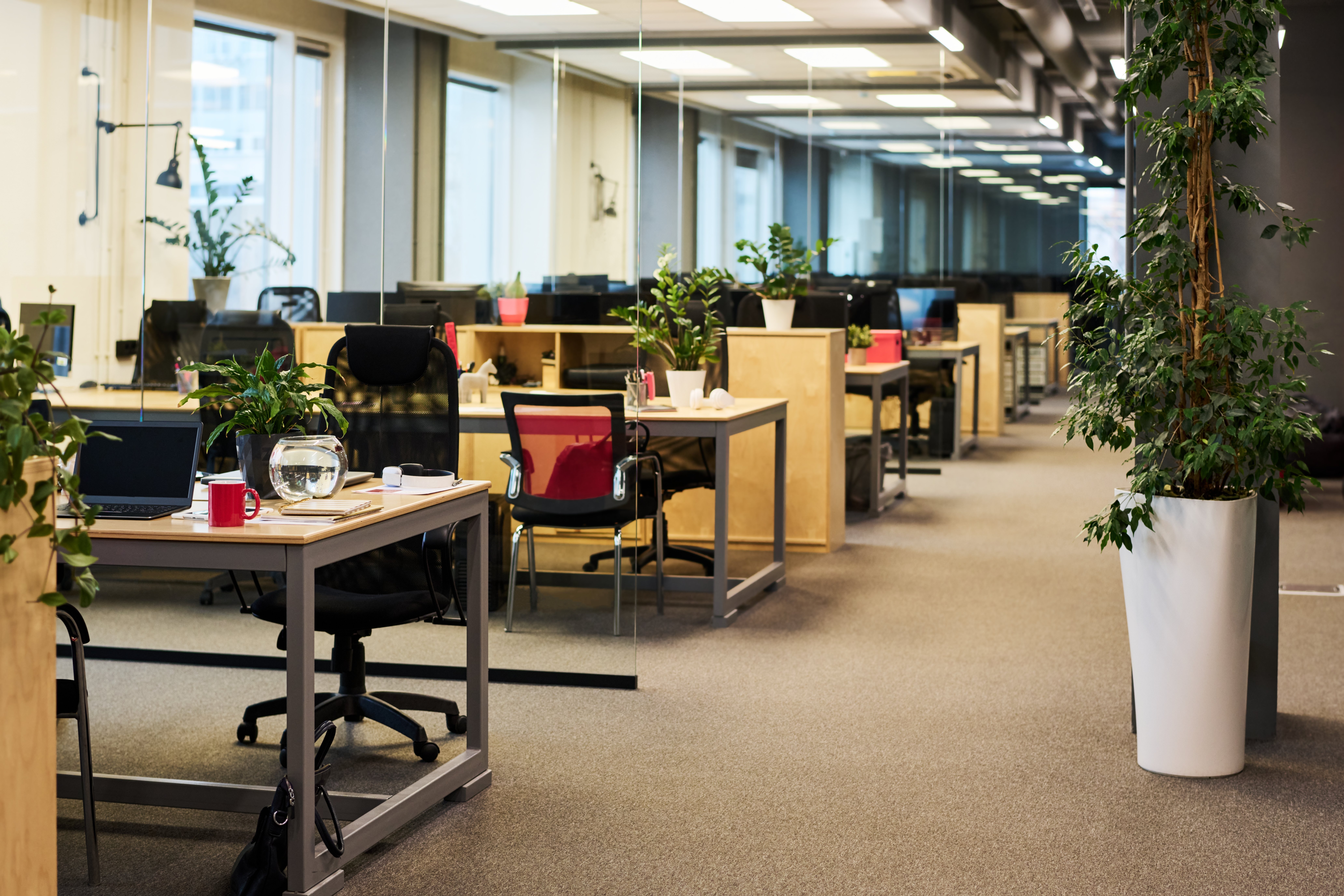Currently, organisations face the need to adapt to new economic, social and environmental realities. One of the most relevant aspects of this transformation is the creation of sustainable offices, which not only optimise resources but also enhance employee wellbeing and contribute to the fight against climate change.
The "Sustainable Office Playbook", developed by IFMA Spain, is a comprehensive guide that covers everything from fundamental principles to advanced strategies in managing sustainable workspaces. In this article, we break down the key aspects of the guide and its implementation.
IFMA Spain is a global association that connects facility management professionals, in order to promote the exchange of knowledge and best practices in facilities management.
Sustainability as a strategy in office design
One of the central points established by the Playbook is that a sustainable office must begin with its architectural design. It is not just about applying certain sustainable measures afterwards, but about integrating sustainability into the very conception of the space. This includes selecting materials with low environmental impact, such as the use of certified wood, low-impact materials, and finishes that do not pollute the indoor air.
Furthermore, the optimisation of natural light and ventilation are fundamental aspects that not only contribute to the reduction of energy consumption but also improve the quality of the work environment. According to the Playbook, spatial configuration should allow natural light to pass through for most of the day, and ventilation systems should be employed to ensure fresh and healthy air at all times, reducing reliance on artificial systems.
Energy strategies: technology at the service of sustainability
The Sustainable Office Playbook also emphasises the importance of incorporating smart technologies for the efficient management of energy resources in the office. Solutions such as IoT (Internet of Things)-based energy management systems, motion sensors for lighting control and smart thermostats for HVAC are essential to minimise energy use. Through automation, it is possible to adjust environmental conditions to the actual occupancy needs of the space, thus avoiding resource wastage.
The guide also suggests the use of renewable energies, such as solar, highlighting that transitioning to cleaner energy sources not only reduces the company's carbon footprint but also optimises long-term efficiency. Additionally, the integration of energy storage systems, such as batteries, enables the utilisation of resources generated during periods of low demand to be maximised.
Employee wellbeing and health
Employee wellbeing is another fundamental pillar of the Playbook. A sustainable office should be a space that promotes productivity, creativity, and the physical and mental health of workers. To achieve this, the Playbook suggests incorporating ergonomic furniture to prevent injuries and muscle pain, as well as rest areas that encourage disconnection and a balance between work and personal life.
Additionally, the use of non-toxic materials and the improvement of indoor air quality through appropriate purification and ventilation systems are crucial to prevent fatigue and enhance concentration. Moreover, the inclusion of green spaces within or around the offices contributes to creating a healthy environment, reducing stress, and increasing overall staff satisfaction.
This vision closely aligns with the WELL certification, which focuses on the wellbeing of building occupants. Many of these best practices we have just discussed are included in the certification's scoring.

Sustainable resource management: minimisation of waste and water use
The Sustainable Office Playbook also emphasises the importance of efficiently managing water resources and waste in the office. Implementing recycling and composting systems, as well as reducing the use of disposable products, are necessary practices to achieve true sustainability.
In terms of water use, it is recommended to install low-consumption devices, such as smart taps and showers, which limit usage without sacrificing comfort. The digitalisation of processes and the reduction of paper use are other key strategies that help reduce companies' ecological footprint.
Certifications and standards
To ensure that the measures adopted are effective and meet international standards, the Playbook suggests that organisations seek to obtain sustainability certifications such as LEED, BREEAM, VERDE, and WELL. These certifications not only validate the organisations' efforts towards sustainability but also enhance their corporate reputation and can generate long-term savings through resource optimisation.
Conclusion
The "Sustainable Office Playbook" by IFMA Spain offers a detailed vision of how companies can progress towards more responsible and efficient workspace management. Sustainability, far from being a fleeting trend, is solidifying as a key business strategy for the future. By integrating innovative technologies, designing spaces appropriately, and adopting a comprehensive approach to resource management, offices can transform into healthier, more productive, and environmentally friendly workplaces.
Embracing the best practices outlined in the Playbook not only provides tangible benefits in terms of profitability and efficiency but also positions companies as leaders in social and environmental responsibility, equipping organisations to successfully face future challenges.
For more details on how to implement these strategies and to obtain the complete Playbook, we invite you to visit the official website of IFMA Spain.


